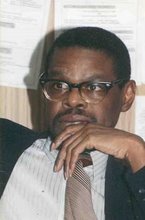The First Leg of Rediscovery
Wednesday, June 24, 2009
There was a time when men in prison turned their captivity into centers of learning and prisons into universities. It was the same period of time when they invented the phrase: All the Black Panthers are either dead, in prison, in exile, or in hiding.
In the federal prison system, we had access to libraries across the country through the inter-library loan system. College students and professors visited the prison for exchanging knowledge with intellectual inmates who spent most of their time reading, studying, and teaching. Prison administration didn’t like it, but these were rights we had won through the courts.
Inmate Victor Lindsey broke a record by receiving his bachelor’s degree from Southern Illinois University in a year and a half. This started a wave of college professors coming into the prisons, conducting classes with inmates. One college professor, Dr. Walt Robinson, head of the Black Studies program at SIU, used the opportunity to use inmates to conduct historical research.
He told us that we had something that people on the outside world did not have. We had all the time in the world. We could take advantage of that time by contributing to black historical research.
Dr. Robinson was the preeminent black historian in the country. He sat on the President’s Council on Aging. And yet, he chose us to do his bidding. It was an honor to be recognized as some worth. If left to the prison administration and the government, we would have been forever stereotyped as a bunch of low IQ criminals. We needed Dr. Robinson as much as he needed us.
Our biggest assignment was to find the “40 acres and mule” that had been promised to freed slaves. It had been a claim handed down in Negro folklore for ages, but there was no document, no history left behind.
During those prison classroom years, we never found the truth. But we discovered other things. We discovered that some historical documents were sealed. Newspaper accounts of events excluded the contributions of Negroes. Therefore, we had been excluded from history altogether, except for what was handed down orally, from generation to generation.
During the Free Speech Movement of the early 1960s, students began to demand truth from the government. Black students began to demand the truth about history. In response, Black Study programs began cropping up on every university and college campuses around the country. This was how Dr. Robinson had come to head Southern Illinois University Black Studies Department at Carbondale, just outside of the federal prison at Marion.
The government allowed inmates to take college courses at the time. One wing of the federal prison at Marion was dedicated as the Education Department. It was in these classrooms that prisoners studied academic courses and conducted classes on their own. But prison officials were not keen on inmates gaining an education and getting degrees, because many guards themselves were high school dropouts. And some inmates had no inclination for books.
Some of our fellow inmates derided the Black Panther as “Paper Panthers” because of our devotion to education. We were accused of talking revolution while hiding behind books. We would have to prove that we had the fortitude to stand up as men in the harsh and brutal environment. Therefore, we were constantly challenged physically, sometime at the point of a blade. Prisons were no universities, claimed the more brute inmate. They were gladiator schools.
Wednesday, June 24, 2009
Subscribe to:
Post Comments (Atom)




No comments:
Post a Comment